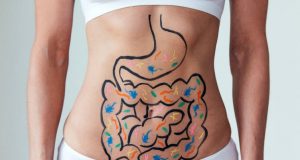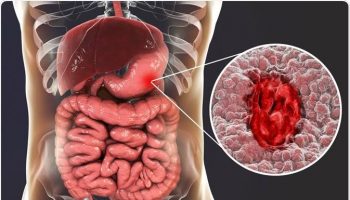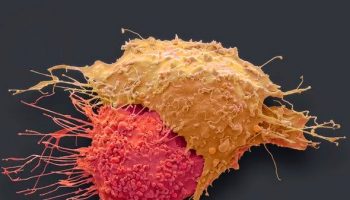THE LINK BETWEEN YOUR GUT AND HORMONES
 The talk about gut health and hormones isn’t yet hitting the internet as it should. Rather, everyone is more concerned about their shape and the size of their belly. Your gut and hormones are intrinsically connected and affect your health in ways you can’t imagine.
The talk about gut health and hormones isn’t yet hitting the internet as it should. Rather, everyone is more concerned about their shape and the size of their belly. Your gut and hormones are intrinsically connected and affect your health in ways you can’t imagine.
This write up helps explain the link between your gut and hormones.
What Is The Estrobolome?
The estrobolome is a collection of bacteria in the gut which is capable of metabolising and modulating the body’s circulating estrogen. It is the bacteria in the gut, and the estrobolome, that affects estrogen levels, which in turn can impact weight, libido and mood. The estroblome modulates the enterohepatic circulation of estrogens and affects circulating and excreted estrogen levels.
Hormones And Gut Health: Why should I care about my Gut Health?
Scientific research has demonstrated that gut microbes regulate many aspects of human physiology, including intestinal permeability, the absorption of nutrients from food, and immunity.
Optimising our gut health is key to keeping our hormones in balance. Gut health is so important because the microbiome has many functions as listed below:
• Aids the synthesis and regulation of hormones and neurotransmitters
• Facilitates absorption of macro and micronutrients
• Has an essential role in the immune system
• Contributes to regulation of estrogen levels in the body
Estrogens are primarily made in the ovaries and adrenal glands. There are three different types, which are Estradiol, Estriol, and Estrone. All of which have vital roles in the body. In women, estrogens help regulate body fat, are essential to female reproductive function, cardiovascular health, bone health, and brain function (including memory). In men, estrogens aid in the maturation of sperm and maintenance of libido, oh yes! Male folks has estrogen too.
When the gut microbiome is healthy, the estrobolome is producing optimal levels of an enzyme called betaglucuronidase – there is an imbalance in estrogen when there is too much production of this enzyme.
Betaglucuronidase also has an important role in breaking down complex carbohydrates and the absorption of bilirubin and flavonoids. A healthy, diverse gut microbiome with a rich collection of different bacteria is critical for hormonal balance.
A healthy estrobolome minimises reabsorption of estrogen from the gut allowing safe removal as waste in stool and urine again ensuring hormone balance.
Gut dysbiosis is an imbalance of the gut bacteria in the gastrointestinal tract. Elevated betaglucuronidase levels are associated with conditions including:
• Pre-menstrual syndrome (PMS)
• Obesity
• Metabolic syndrome
• Estrogen-related cancers (breast and prostate)
• Endometriosis
• Infertility
• Mood swings (the feel good hormones are produced in the gut, if the gut is not healthy, it sends wrong signals)
• Heart disease
Unfortunately, gut dysbiosis and gut microbiome imbalance are very common and the delicate balance of the microbiome and estrobolome can be affected by many different factors which include genetics, age, weight, diet, alcohol, antibiotics, environmental pollutants and more.
Signs of an Unhealthy Gut
There are many signs of an unhealthy gut, which can often be misdiagnosed as something else.
• Digestive issues (bloating, gas, diarrhoea or constipation)
• Weight changes
• Food sensitivities
• Fatigue
• Skin irritation
• Autoimmune conditions
• Hormonal imbalance
Factors that affect Gut Health And Hormone Balance
To correct hormone imbalance, there are ways to ensure that the gut stays healthy and those ways include:
1. Dietary considerations
“The food we eat not only feeds our cells, but also determines what kind of inner garden we are growing in our guts.” – Dr. Mark Hyman.
Well, the saying “you are what you eat” comes to limelight here. Diet plays a vital role in shaping our gut microbiome. A low GI (glycaemic index) diet which contains a diverse range of fruit, vegetables and fibre, high in phytonutrients – the so-called ‘rainbow plate’ – can encourage microbial diversity.
It is important to go moderate on what is referred to as ‘white carbs’ such as pasta, rice and potatoes which contain resistant starch; a type that promotes healthy gut. Cutting them out totally would mean cutting out the sources of resistant starch.
Bear in mind that cruciferous vegetables, such as broccoli, contain compounds that ease detoxification of estrogen. The supplement DIM (diindolylmethane) contains concentrates of such compounds and can be effective in lowering more toxic estrogen byproducts.
Prebiotics and probiotics should also be considered. Prebiotic foods such as garlic, onion, asparagus and bananas provide the material that gut bacteria like to feed on. Probiotic foods such as kefir, kombucha, kimchi, plain yoghurt and other fermented foods are really useful for introducing beneficial bacterial strains, like lactobacillus, to the gut.
It’s important to note that the supplement calcium D glucarate is a betaglucuronidase inhibitor and allows estrogen to remain conjugated, and therefore safely eliminated by intestinal detoxification.
2. Your environment matters a lot
Phytoestrogens from plants such as soya, tofu and tempeh are consumed as food while others are synthetically manufactured and called Xenoestrogens. These are found in common household products such as fragrances, pesticides and plastics, and can easily be obtained from the environment around us. It is important to find ways of reducing these toxic substances that impact our health and find more environmentally friendly solutions. Xenoestrogens are absorbed by the body and stored in liver and fat cells. They act synergistically with endogenously produced estrogens and influence cell proliferation and disrupt the delicate balance of hormones.
3. Antibiotics
So many people abuse antibiotics, if not prescribed, please desist from using them. The use of antibiotics disrupts the ecology of the gut microbiome, and can cause overgrowth or dysbiosis. A study by the University of Copenhagen found that six months after stopping antibiotics, most healthy people can recover the microbiome composition and function. However, the gut can still lack some of the beneficial bacteria and we then need to reintroduce the good guys!
4. Alcohol
No one really wants to hear that overconsumption of alcohol is detrimental to the health. Our society has made it look like consuming alcohol doesn’t make you vulnerable at all. But alcohol consumption can have a negative impact, not only on the gut microbiome but also on the liver and its ability to detoxify. This contributes to estrogen dominance symptoms and an increased risk of estrogen related cancers. Its festive season and you must unwind with friends and families, so we won’t put a knife to your throat not to take alcohol. 1 drink a day for women and 2 drinks a day for men( 1 drink equates 12 ounces of beer, 8 ounces of malt liquor, 5 ounces of wine, 1.5 ounces of distilled spirits and liquor). A single large glass of wine can contain up to 3 units of alcohol!
5. Physical activity
Physical activity can never be overemphasised. Exercise is an excellent way to support the detoxification that happens in the liver. Regular, moderate intensity exercise can lower levels of circulating estrogens. It can also reduce the stress hormone, cortisol, which can have a negative impact on our sex hormones. However, we do need to be mindful of individuality as different people have different stress levels/thresholds. Activities that stimulate the parasympathetic nervous system or the body’s ‘rest and digest’ mode, such as yoga, are also very beneficial to hormonal health and keeps the hormones balanced.
Summary
Lifestyle, nutrition, physical activity and stress management all play important roles in helping to balance your estrobolome and also ensuring that we keep our hormones balanced and optimal.






